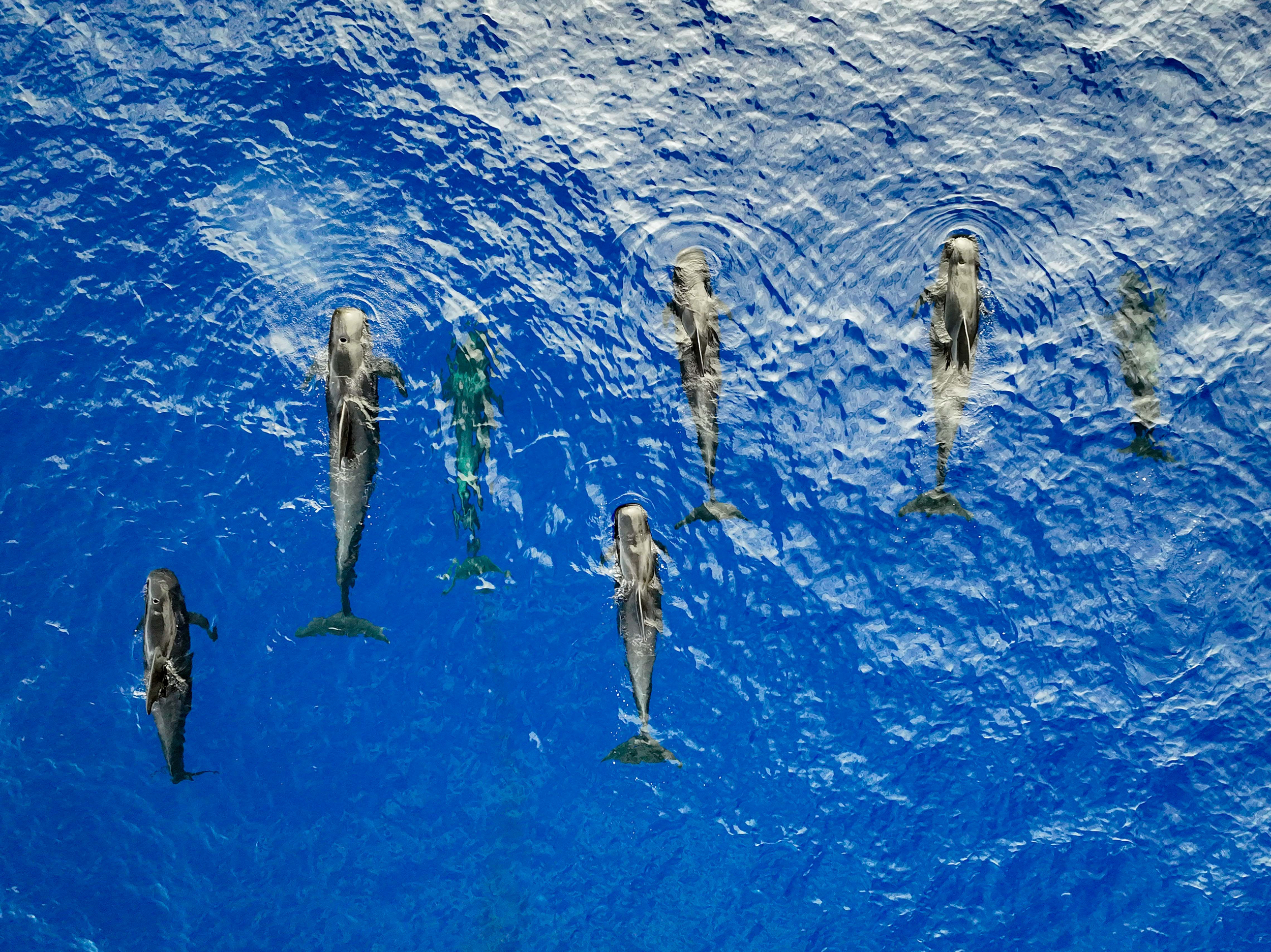Taipei, Taiwan (May 6, 2025) – Greenpeace held a press conference today to reveal multiple illegal shark fishing cases committed by Taiwanese longlining vessels in a designated seasonal fishing ban zone in the North Pacific Ocean. Despite clear evidence, the Taiwan Fisheries Agency(TFA) has failed to impose any penalties for over six months, rendering the regulations ineffective and exposing severe oversight gaps.
Greenpeace also called on the Taiwan government to take full responsibility—especially at a critical time when Taiwan and the United States are engaged in tariff negotiations and U.S. President Donald Trump is pushing for stricter scrutiny of imported seafood linked to illegal, unreported, and unregulated (IUU)fishing.
During its ecological documentation mission in August 2024, Greenpeace’s ship Rainbow Warrior observed four Taiwanese longliners fishing sharks inside a designated seasonal fishing ban area. This clearly violated Taiwan’s fishing regulations[1], which prohibit shark fishing from June 1 to October 31 in waters north of 35°N and between 165°E and 175°E.
Over 10 hours of monitoring, Greenpeace documented the capture of at least 39 sharks, including the endangered shortfin mako shark. Offloading records from the vessels also confirmed that sharks were the primary catch, indicating that the violations were intentional and not incidental bycatch.
Xin-Yi Huang, Ocean Campaigner at Greenpeace East Asia’s Taipei Office said: “The TFA established a 24-hour Fisheries Monitoring Center in 2017 and committed to comprehensive oversight of distant-water fleets to prevent IUU fishing. Moreover, the government highlighted this initiative at the APEC Ocean-Related Ministerial Meeting as a key measure for implementing responsible fisheries. However, after reviewing the agency’s list of violators under corrective guidance from 2017 to 2025 [2], Greenpeace found zero recorded penalties related to seasonal shark fishing bans over an eight-year period. In other words, the agency has enforcement tools but chooses not to use them. This lack of action allows IUU practices on the high seas to persist unchecked, further undermining Taiwan’s international credibility.”
Greenpeace activists wear official-style uniforms and blindfolds, holding an LED sign that read “TFA in Action” — a symbolic critique of the agency’s willful blindness and failure to enforce the law.
Huang further pointed out, “Taiwan’s distant-water fishing fleet, one of the world’s largest, was recently the subject of a transnational alert from Canadian authorities over the alleged illegal capture of a protected dolphin species, and is now facing further allegations of shark fishing within a no-fishing zone designated by Taiwan’s own regulations. Suppose the government continues to ignore or downplay such violations. In that case, it is effectively enabling illegal seafood to enter the markets. This is highly irresponsible and damaging to Taiwan’s seafood export credibility.”
Huang said: “If the government truly values the future of Taiwan’s fishing industry and maintaining its global competitiveness, it must immediately establish a comprehensive and enforceable system to eliminate IUU fishing and restore Taiwan’s global standing.”
ENDS
Notes:
[1] Regulations for Tuna Longline or Purse Seine Fishing Vessels Proceeding to the Pacific Ocean for Fishing Operation
[2] The most recent update to the list was on May 2, 2025.



